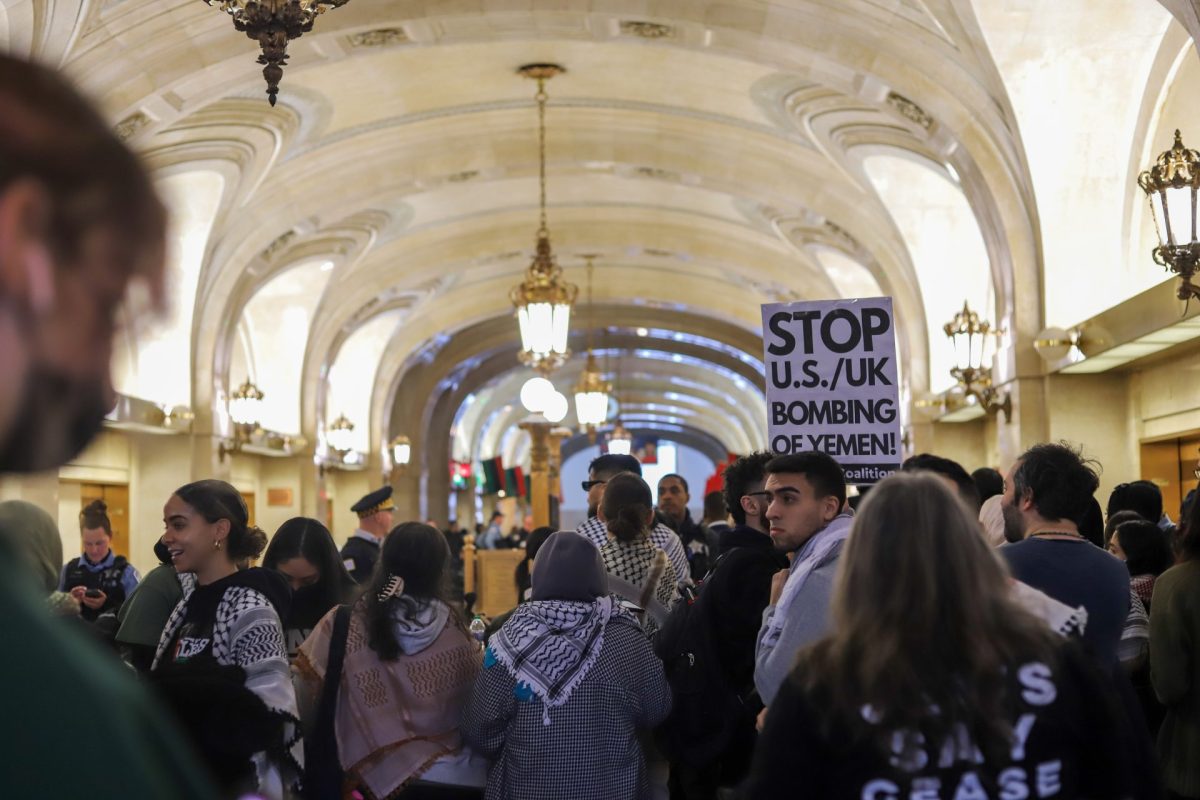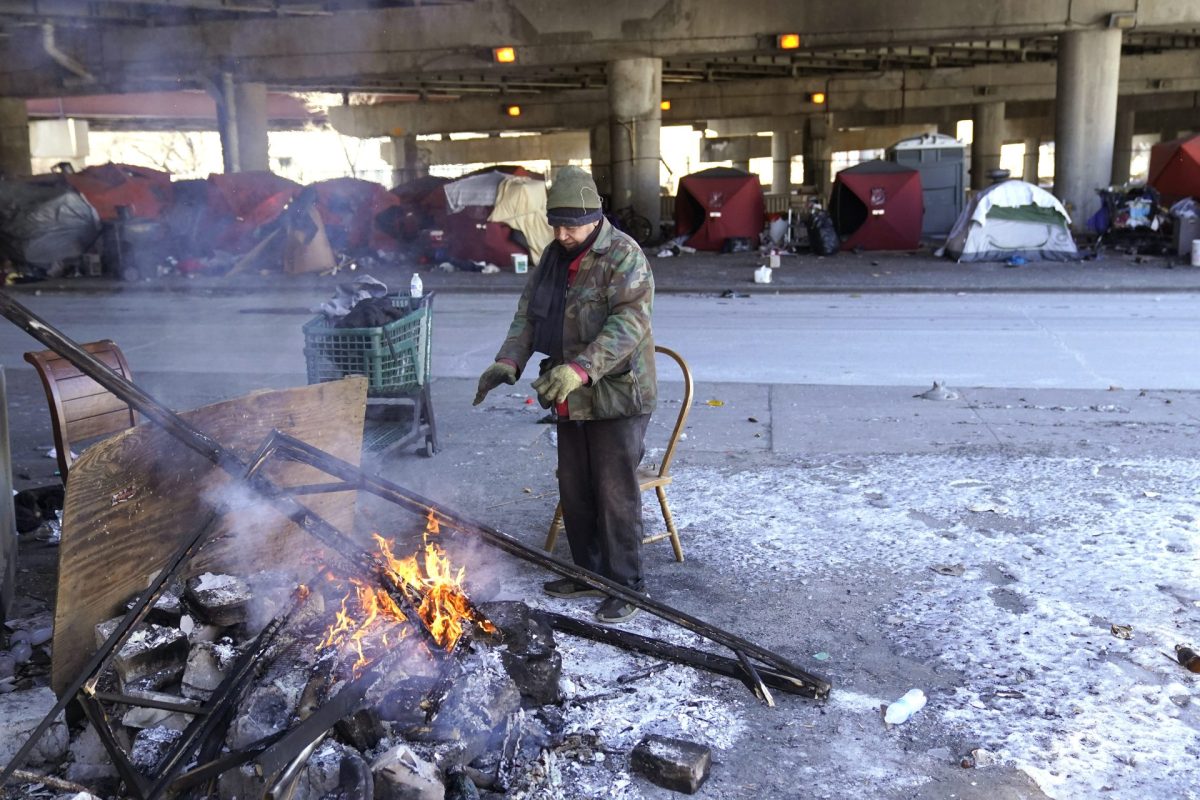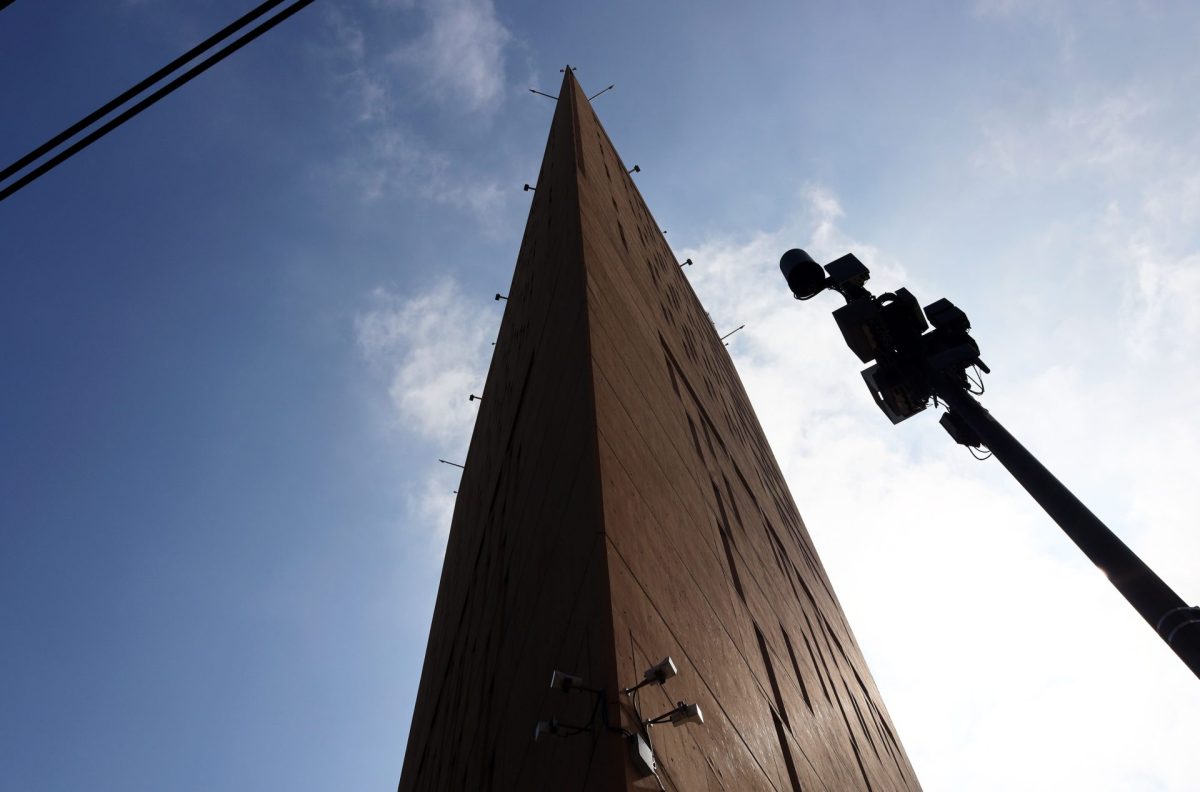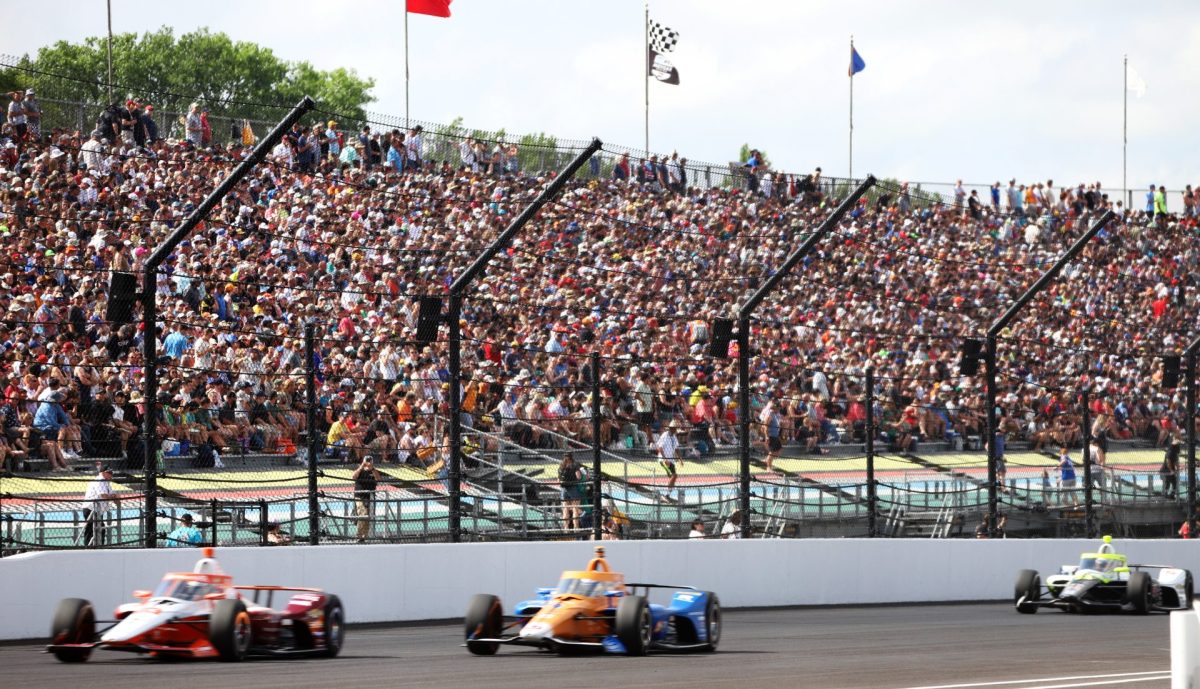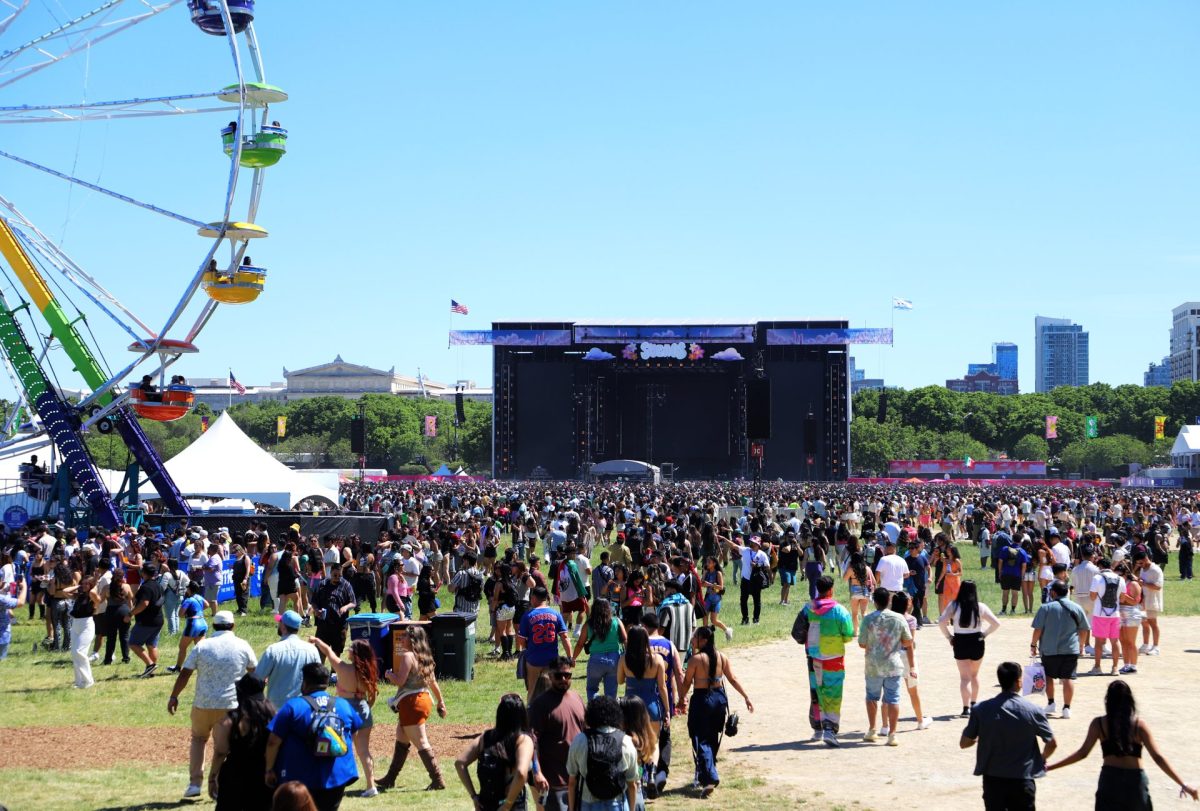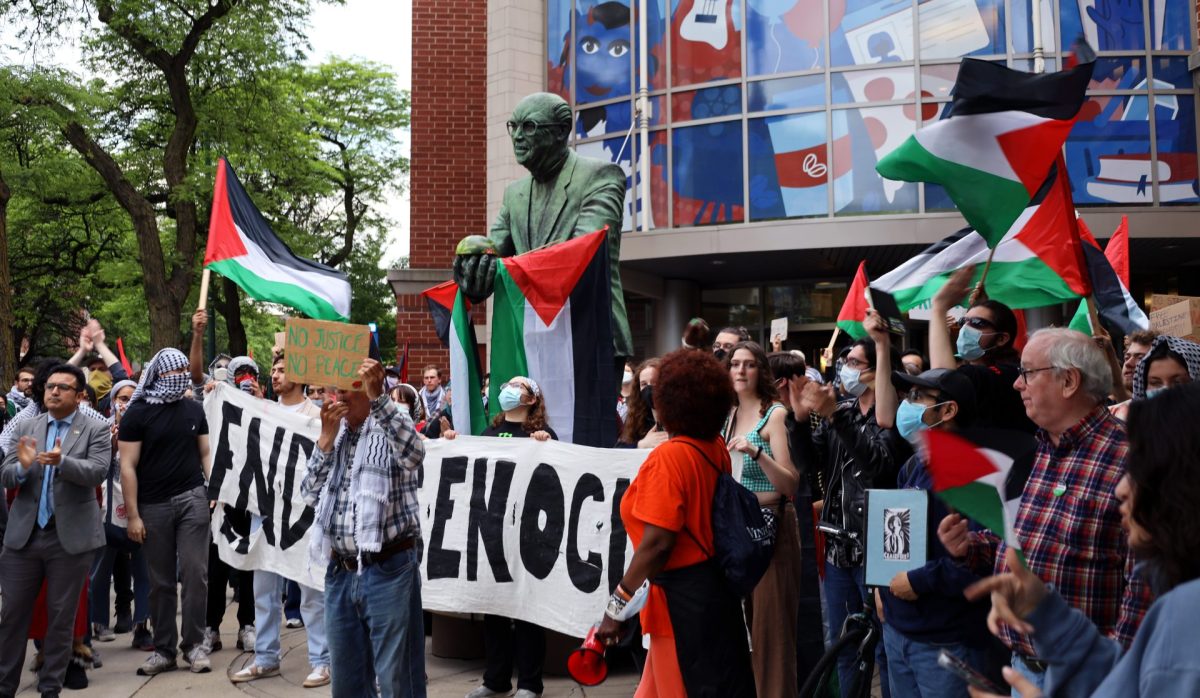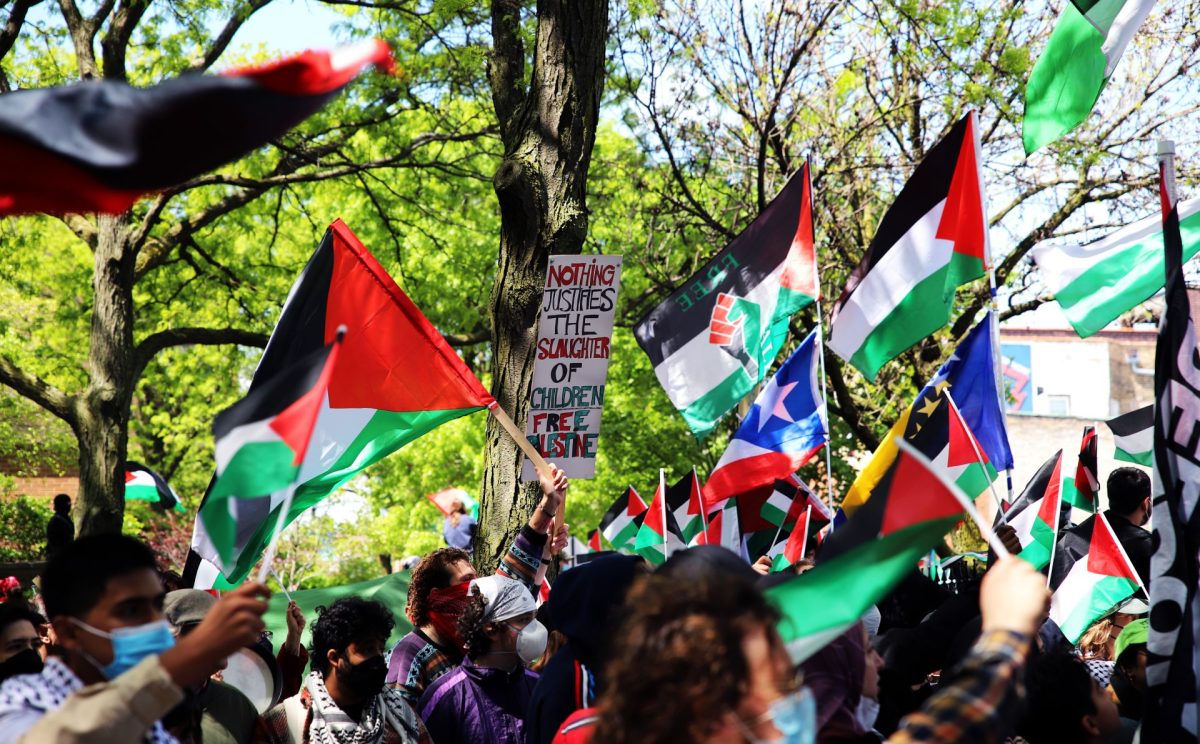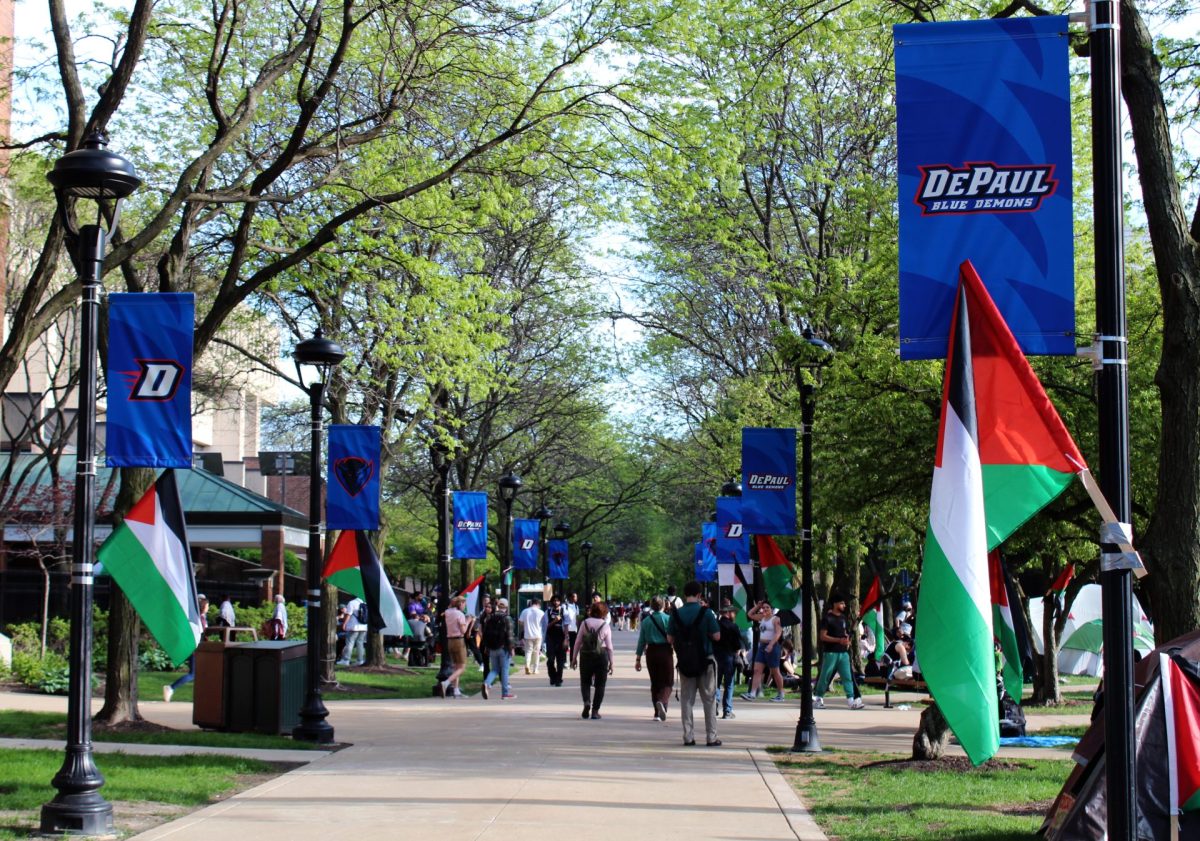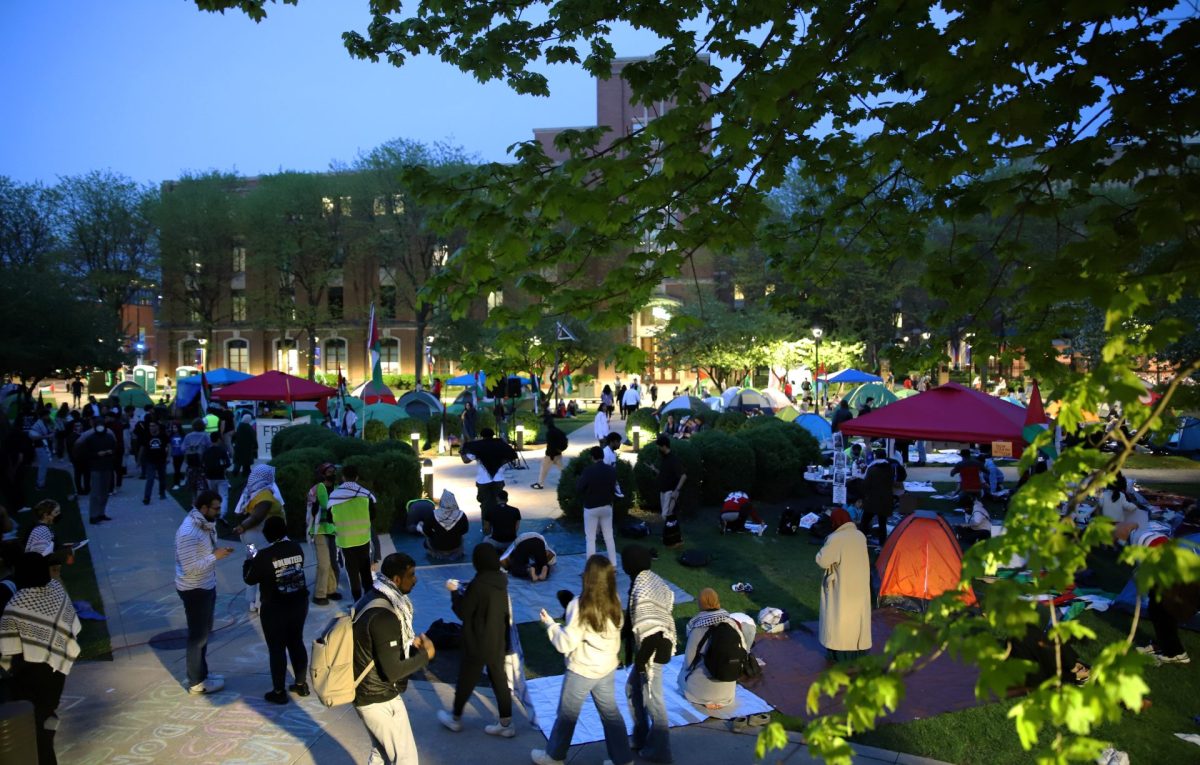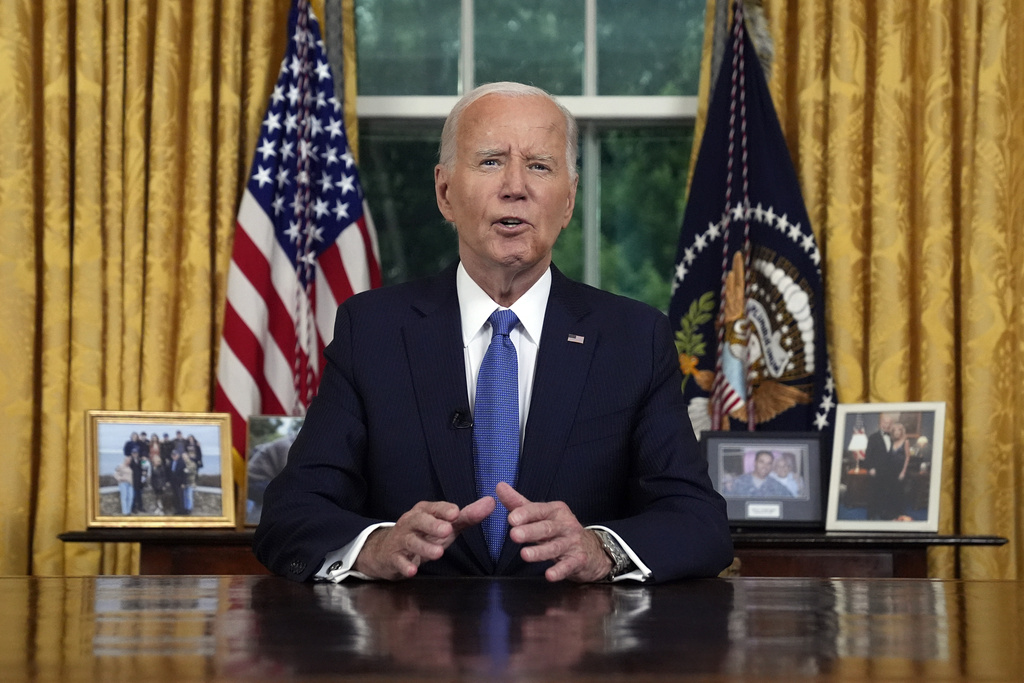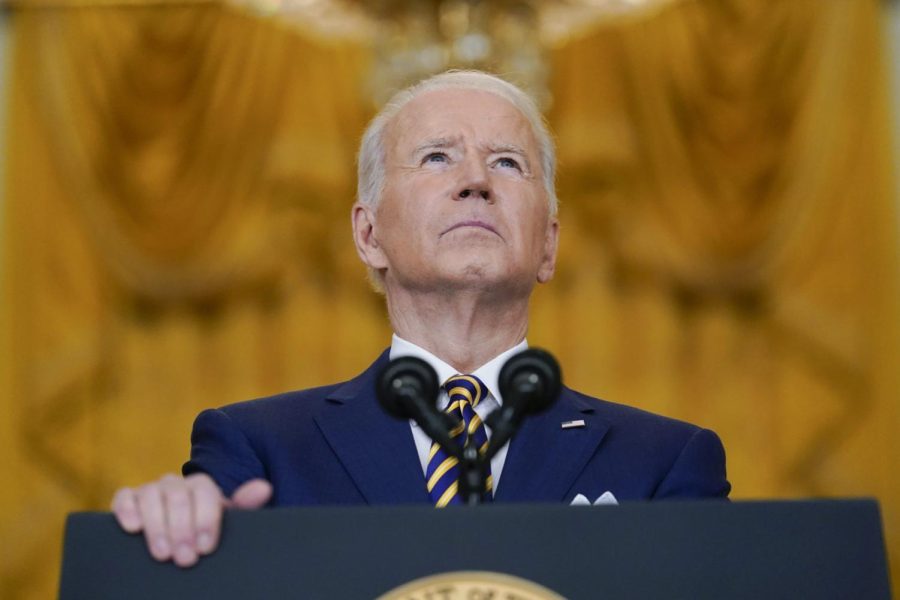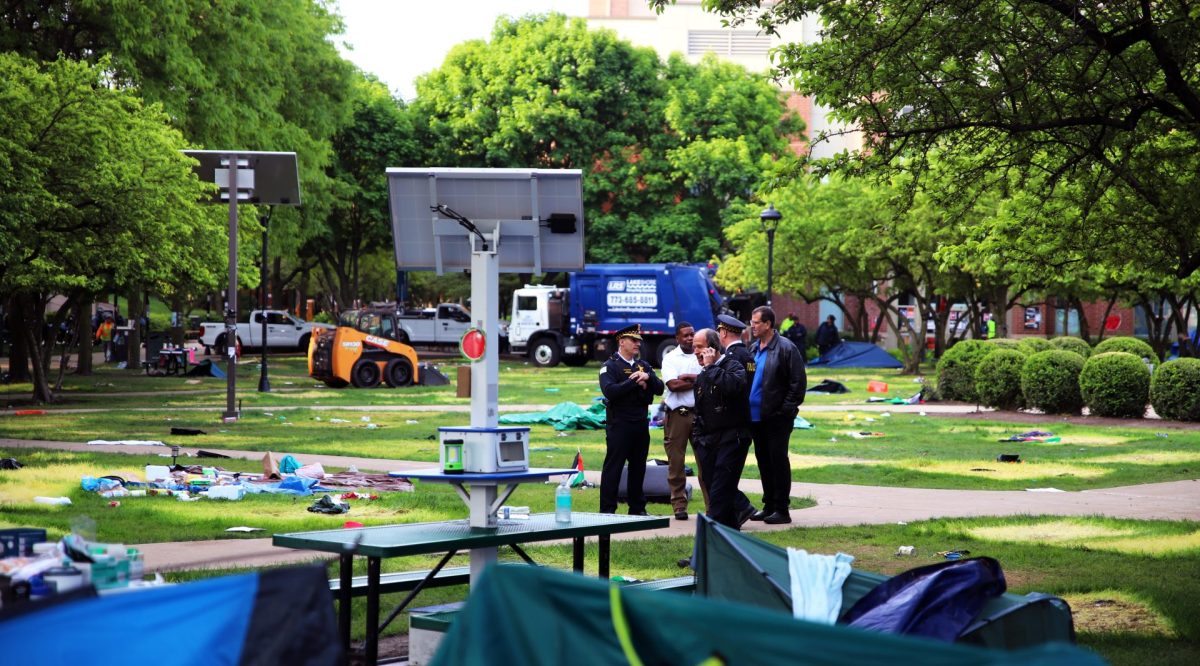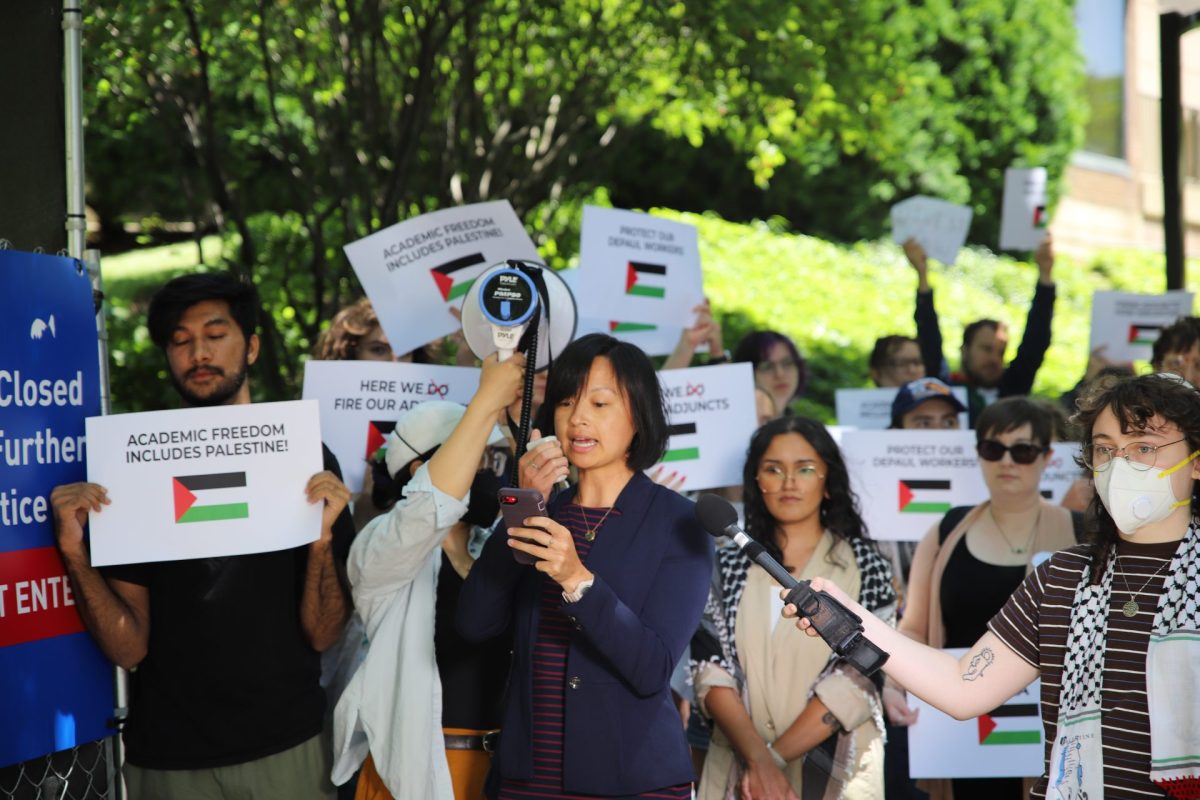Chicago is the largest city in the U.S. to call for a cease-fire in Gaza after City Council members voted in a narrow resolution Wednesday, Jan. 31 with Mayor Brandon Johnson casting the tie-breaking vote in the symbolic decision.
Community organizers, activists, students and families crowded the City Hall lobby, awaiting a decision after the Mayor cleared the council gallery of spectators.
Originally introduced in December by Alds. Rossana Rodriguez-Sanchez (33rd) and Daniel La Spata (1st), the alderpeople called City Council to support a cease-fire in Gaza as the humanitarian crisis worsens.
More than 25,100 Palestinians, including 11,500 children, have been killed since Oct. 7 in Gaza by Israeli forces.
The resolution also called for the immediate release of the remaining 132 hostages, most of them Israeli, in Gaza.
Johnson became the first big city mayor to vocally express his support for a cease-fire, condemning the acts of Hamas in a Jan. 24 press conference and emphasizing the immeasurable loss of life in Gaza as a reason to call for a cease-fire.
Johnson’s role in the resolution is significant, according to Muhammad Sankari, an organizer with the U.S. Palestinian Community Network, Chicago.
“Brandon Johnson was put into office by a movement in this city,” Sankari said. “He was not a political favorite candidate. He came out of the union movement, and he was put in office by a Black, brown progressive coalition in this city. His vote is a reflection of that.”
City Council’s only Jewish member, Ald. Debra Silverstein (50th), urged the City Council to amend the ordinance to show more support for Israel and criticism of Hamas.
“We all want an end to the bloodshed and an end to the war, but it is vital to understand what caused the conflict, and we should pass a resolution that addresses the issue responsibly,” Silverstein said during the meeting.
In City Hall, crowds of multi-ethnic, multiracial and multi-religious groups gathered to show their solidarity and support for Palestinians and a cease-fire.
These progressive, intersectional coalitions are vital to the Palestinian liberation movement, according to Omar Younes, co-founder of Jisoor, an organization bridging the Palestinian movement for liberation with other liberation struggles.
“It has become clear that it’s not just Palestinians that are fighting for a cease-fire,” Younes said. “This means that the Palestinian fight itself spread and made these connections to other fights. … It’s a massive unifying movement in Chicago.”
Arielle Rebekah, representative for Jewish Voice for Peace-Chicago, an organization calling for an end to Israel’s occupation of the West Bank and blockade on Gaza, echoed similar sentiments of intersecting coalitions and their impact on the city’s decision.
“By joining a coalition in solidarity with our Palestinian partners, we send the message that anti-Zionism is not antisemitism, because we are Jewish people who are deeply committed to our faith and liberation for all people,” Rebekah said.
Rebekah emphasized their Jewish faith as reasonings to continue exercising support and solidarity for the Palestinian liberation movement.
“We are deeply committed to ‘never again,’ meaning ‘never again’ for anyone, including our Palestinian loved ones, our community members, our comrades in Gaza and the West Bank,” Rebekah said.
Despite the City Council resolution being symbolic, meaning it won’t directly impact foreign relations, many are hoping the decision will send a clear message to the Biden administration before the Democratic National Convention in Chicago in August.
“I would assume that folks in D.C. follow and look at what happens in Chicago,” Sankari said. “(Johnson’s) vote will hopefully be resonating in the halls of Washington, D.C., to really wake people up.”
A Reuters poll taken in November shows that three-quarters of Democrats support a cease-fire in Gaza as President Biden continues to face backlash for his support for Israel.
We are deeply committed to ‘never again,’ meaning ‘never again’ for anyone, including our Palestinian loved ones, our community members, our comrades in Gaza and the West Bank.”
— Arielle Rebekah, representative for Jewish Voice for Peace-Chicago
Biden is exercising consistent support for Israel, but recently began advocating for a two state solution, calling for the existence of a Palestinian state alongside Israel.
Sankari says that the administration is “way, way behind the times,” and isn’t properly reflecting the majority of Democrats calling for a cease-fire and an end to the violence.
Young voters under 35 represent a large portion of those expressing their disapproval of Israel’s response to Hamas’ attack and the Biden administration’s unequivocal support for Israel.
A Quinnipiac poll taken in November found that 66% of those young voters disapprove of Israel’s response, and 50% believe the U.S. is too supportive of Israel.
In Chicago, young student activists were particularly vocal about their support for Palestinans, with hundreds of Chicago Public School students walking out Tuesday, preceding the City Council vote. Students flooded City Hall and surrounding streets to rally support.
“When we see hundreds of young people, most of whom aren’t Palestinian, doing what they did, it really can’t be ignored,” Sankari said. “This is touching the very soul of our city. Young people are always out first and show us the way forward. We need to listen to our young people.”
Younes expresses the significance of young people, particularly students, in activism across Chicago.
“The students are always fighting the toughest fight,” Younes said.
Despite the City Council’s resolution being characterized as “a victory for us, and for our movement and our people,” by Sankari, many say this does not represent the finish line for the fight for Palestinian liberation.
“These last four months felt like a sprint, but in many ways is a part of this marathon that we’re now all a part of,” Rebekah said.


